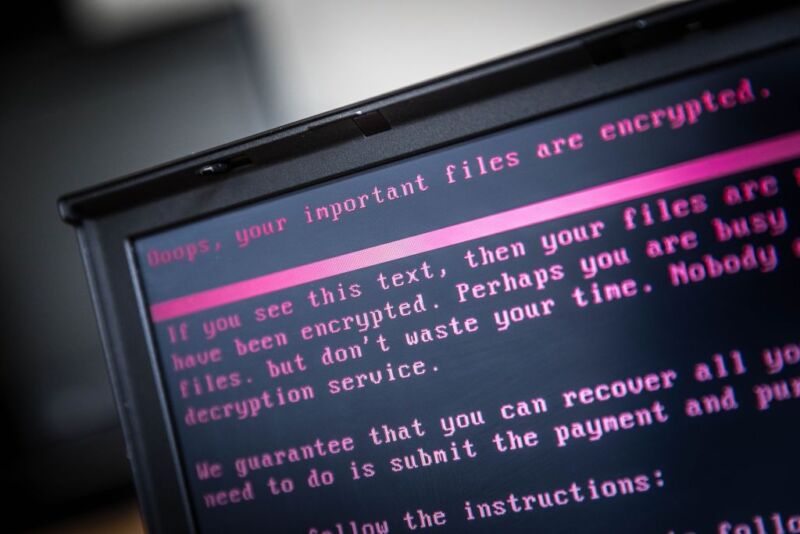Why it’s hard to sanction ransomware groups
[ad_1]

This story was initially revealed by ProPublica.
On February 25, the working day right after Russia invaded Ukraine, a prolific ransomware gang termed Conti created a proclamation on its dim internet site. It was an unusually political assertion for a cybercrime organization: Conti pledged its “full help of Russian government” and reported it would use “all probable resources to strike again at the critical infrastructures” of Russia’s opponents.
Possibly sensing that such a general public alliance with the routine of Russian President Vladimir Putin could result in problems, Conti tempered its declaration afterwards that day. “We do not ally with any federal government and we condemn the ongoing war,” it wrote in a abide by-up assertion that nevertheless vowed retaliation in opposition to the United States if it utilised cyberwarfare to goal “any Russian-talking area of the globe.”
Conti was likely involved about the specter of US sanctions, which Washington applies to people today or nations around the world threatening America’s protection, overseas policy, or economy. But Conti’s endeavor to resume its standing as a stateless procedure didn’t perform out: In days of Russia’s invasion, a researcher who would later on tweet “Glory to Ukraine!” leaked 60,000 interior Conti messages on Twitter. The communications showed indications of connections among the gang and the FSB, a Russian intelligence agency, and included 1 suggesting a Conti manager “is in services of Pu.”
But even as Putin’s spouse and children and other Russian officials, oligarchs, banking institutions, and businesses have confronted an unparalleled wave of US sanctions developed to impose a crippling blow on the Russian economic climate, Conti was not hit with sanctions. Any time the US Treasury Section sanctions these kinds of an operation, Us citizens are legally barred from paying it ransom.
The reality that Conti wasn’t set on a sanctions list may well appear to be stunning provided the common harm it wrought. Conti penetrated the personal computer units of extra than 1,000 victims around the earth, locked their information, and collected extra than $150 million in ransoms to restore entry. The team also stole victims’ knowledge, released samples on a dim site, and threatened to publish much more until it was paid out.
But only a smaller handful of the legions of alleged ransomware criminals and teams attacking US victims have been named on sanctions lists above the years by the Treasury Department’s Place of work of International Belongings Management, which administers and enforces them.
Putting a ransomware group on a sanctions list is not as basic as it may possibly appear to be, present-day and former Treasury officers said. Sanctions are only as good as the proof at the rear of them. OFAC largely depends on details from intelligence and legislation enforcement businesses, as effectively as media stories and other resources. When it will come to ransomware, OFAC has commonly utilised evidence from legal indictments, this kind of as that of the alleged mastermind guiding the Russia-dependent Evil Corp cybercrime gang in 2019. But these kinds of legislation enforcement actions can take decades.
“Attribution is really challenging,” Michael Lieberman, assistant director of OFAC’s enforcement division, acknowledged at a convention this 12 months. (The Treasury Department did not answer to ProPublica’s requests for remark.)
Ransomware teams are frequently shifting their names, in portion to evade sanctions and regulation enforcement. Certainly, on Thursday, a tech web page known as BleepingComputer reported that Conti itself has “officially shut down their procedure.” The write-up, which cited information from a danger-avoidance corporation known as AdvIntel, laid out aspects about the standing of Conti’s sites and servers but was unambiguous on a essential point: “Conti’s long gone, but the operation lives on.”
The evanescence of the Conti title underscores a different purpose it is hard to sanction ransomware groups: Putting a team on a list of sanctioned entities with no also naming the men and women guiding it or releasing other pinpointing characteristics could cause hardship for bystanders. For illustration, a lender consumer with the final title “Conti” may well pop up as a sanctioned particular person, generating unintended authorized exposure for that particular person and the lender, said Michael Parker, a previous official in OFAC’s Enforcement Division. The federal government then would have to untangle these snarls.
[ad_2]
Supply link
